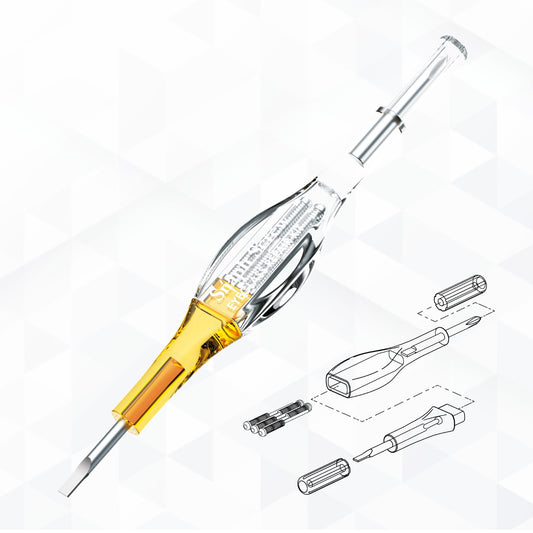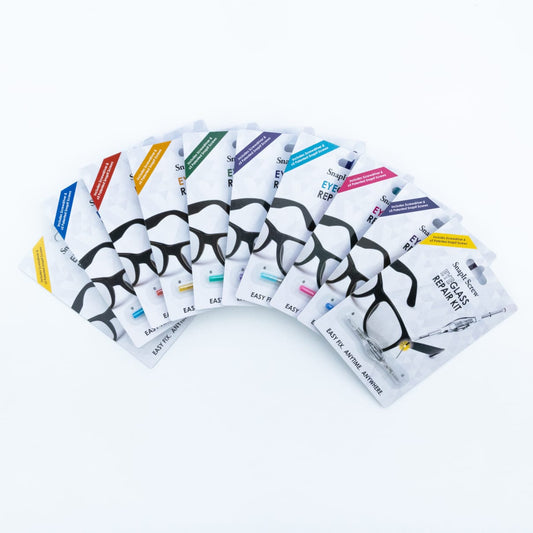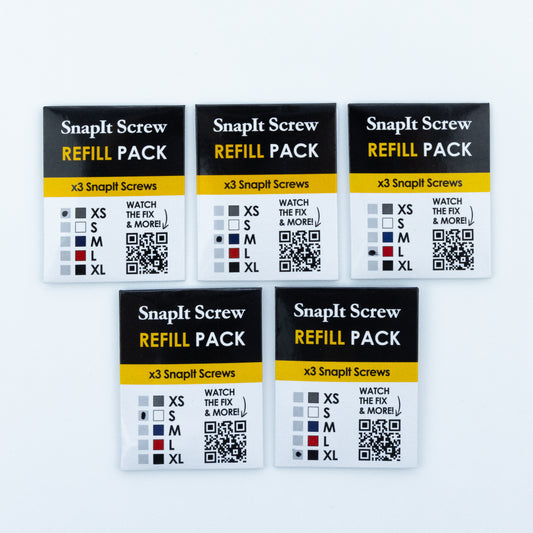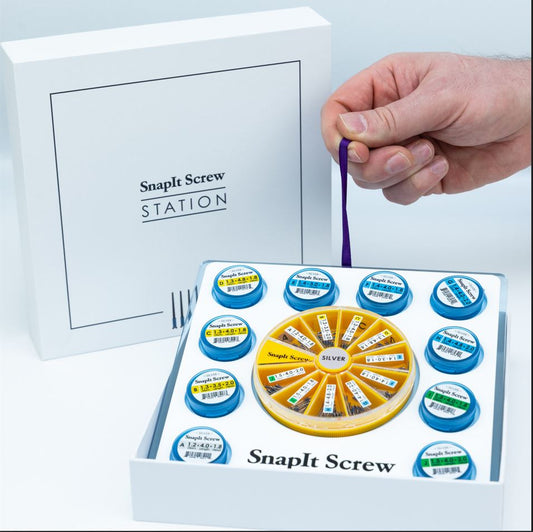Scratched lenses can be incredibly frustrating - distorting your vision, catching the light, and making even the best pair of glasses feel worn out. Whether you’ve accidentally dropped your specs or cleaned them with the wrong cloth, those fine lines on the surface seem almost impossible to ignore. But the big question is: can you remove scratches from eyeglasses, or is it time to invest in a new pair?
Can You Actually Remove Scratches from Eyeglass Lenses?
The short answer: it depends on the type of lens and the depth of the scratch.
-
Minor surface scratches on plastic lenses can sometimes be polished out or masked.
-
Deep scratches that affect the coating or the lens material itself typically can’t be removed completely, and trying might make them worse.
Glass lenses are harder and more scratch-resistant than plastic, but once they’re scratched, they’re much more difficult to fix without professional help.
First Things First: What Type of Lenses Do You Have?
Before trying any DIY method, determine what kind of lenses you’re working with:
-
Plastic or polycarbonate lenses: Most common today, lightweight and impact-resistant, but prone to scratches.
-
Glass lenses: Rare these days but highly scratch-resistant.
-
Coated lenses: Many modern lenses include anti-reflective, UV, or blue-light coatings. These coatings can be damaged by harsh chemicals or abrasive treatments.
If your lenses are coated, you must be extra cautious - not every scratch removal method is safe.
Home Remedies for Light Scratches
These methods won’t make your glasses look brand new, but they might improve clarity by filling in or disguising superficial scratches. Always clean your lenses first with warm water and lens-safe soap before applying any of these.
Toothpaste (Non-abrasive)
-
Use a non-gel, non-abrasive, plain white toothpaste.
-
Apply a small dab to the lens with a microfiber cloth.
-
Rub gently in a circular motion for about 10 seconds.
-
Rinse and dry with a clean cloth.
Use only occasionally - frequent use can wear down lens coatings.
Baking Soda Paste
-
Mix baking soda with water to make a thick paste.
-
Apply with a soft cloth and rub gently in circles.
-
Rinse and dry thoroughly.
Good for plastic lenses without coatings. Like toothpaste, it may fill in shallow scratches but won’t work miracles on deep damage.
Vehicle Wax or Furniture Polish
-
Designed to fill in small imperfections on surfaces.
-
Apply a tiny amount, buff gently, and wipe clean.
These can improve appearance but may leave a residue that needs to be cleaned frequently. Not ideal for daily wear glasses.
Scratch Filler Products: Do They Work?
There are commercial scratch filler kits and sprays specifically marketed for eyeglass lenses. These products aim to mask scratches by filling them in with a transparent resin or polish.
-
Pros: Easy to apply, affordable, safer than household abrasives.
-
Cons: Results are temporary, may affect vision quality or lens coating, and need to be reapplied often.
If you use these, follow instructions exactly and test first on an old pair if you’re unsure.
When to Skip DIY and Go Pro
If your lenses are expensive, coated, or part of progressive or multifocal glasses, it’s best not to risk damage. Opticians and optical stores may offer:
-
Professional polishing (for plastic lenses)
-
Re-coating services (for damaged anti-reflective or UV coatings)
-
Lens replacement - often cheaper than replacing the whole frame
If scratches are interfering with your vision, or your eye strain has increased, it’s time to see a professional.
What Not to Do When Dealing with Scratches
Some popular online tips can actually make things worse. Avoid:
-
Window or car polish: May contain harsh chemicals or abrasives.
-
Toothpaste with microbeads or whitening agents: These can strip coatings or scratch further.
-
Rubbing lenses with paper towels or tissues: These are more abrasive than they look.
-
Using kitchen cleaners or alcohol: These can ruin coatings or cloud the lens permanently.
When in doubt, stick to methods made specifically for eyewear.
Preventing Scratches: Smart Habits for the Future
Protecting your glasses is always better than trying to fix them. Here’s how to keep them in top shape:
-
Always store your glasses in a case when not in use.
-
Use only microfiber cloths and lens cleaner designed for eyeglasses.
-
Avoid placing glasses lens-down on any surface.
-
Keep a backup pair for rough use (e.g. travel, outdoor work).
-
Clean lenses gently - rinse off particles before wiping to avoid grinding them into the lens.
-
Consider scratch-resistant coatings when you buy your next pair.
If your glasses are scratched beyond repair, don’t settle for blurry vision - investing in a new pair or a professional lens replacement could be the clearest decision you make all year.
 and
and  WHEN BUY 3 KITS
WHEN BUY 3 KITS







